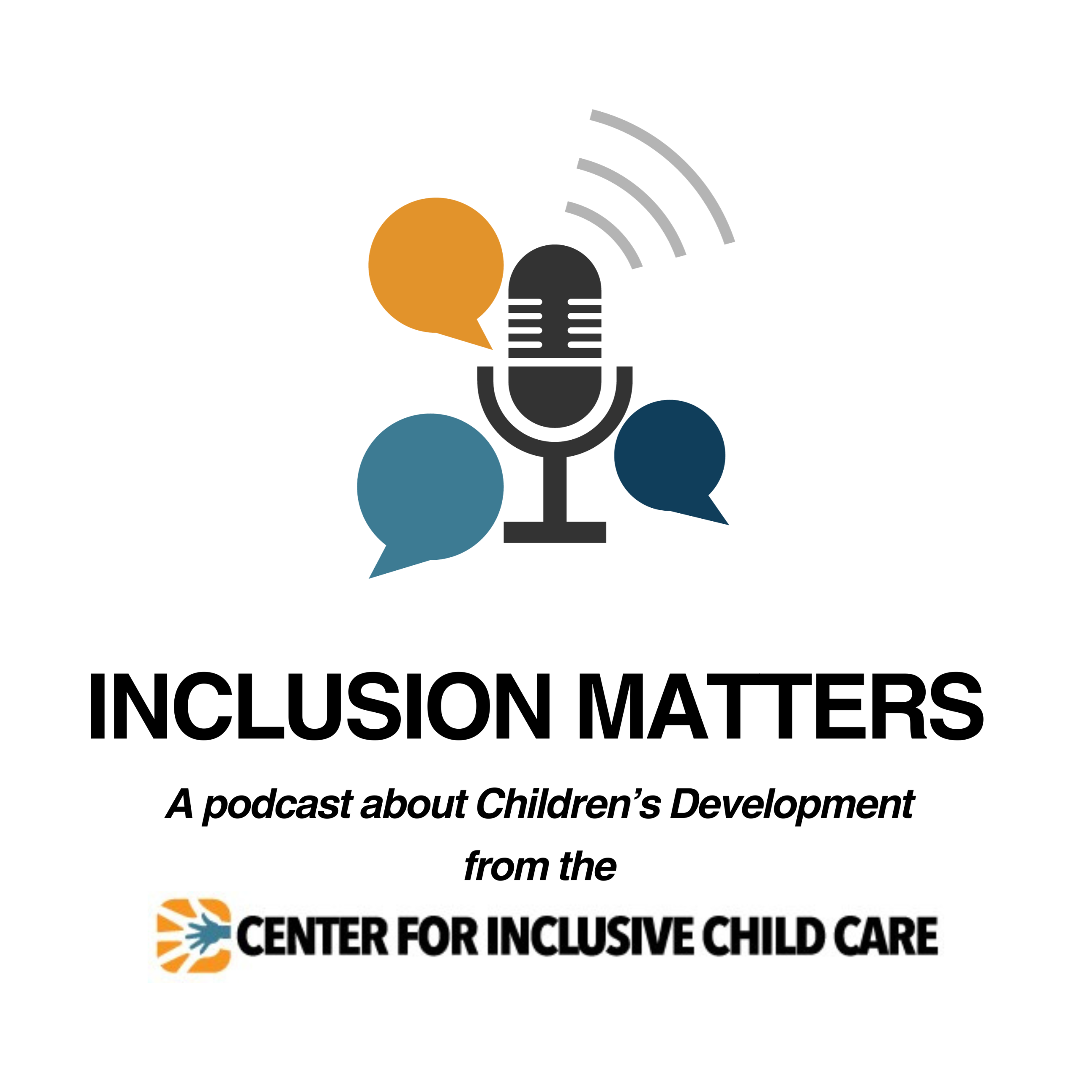Podcast

Inclusion Matters is a podcast produced by CICC. Early childhood experts discuss a wide array of important topics for early childhood professionals.
Inclusion Matters is also available on Spotify, Overcast, Google Podcasts, and Radio Public.
Adaptability and Mood--How to Help Children with Change
Some children have difficulty when it comes to adjusting to attempts to change or influence what they are doing. Change is often hard for many of us when we are doing something we really enjoy! When you also factor in a child’s natural mood, you can find yourself in a struggle with a young child. In this podcast, Cindy and Priscilla will talk about ideas to help children who may struggle with adapting to changes in their world.
(Length: 15:39)Activity Level--Children Who Need to Move!
Cindy and Priscilla discuss a temperament trait that is commonly associated with challenging behaviors in early childhood settings: activity level. While we often think first about a child who is really busy, children who have a low activity level need adaptations to the environment as well in order to have successful experiences. Listen to this podcasts for some strategies as you think about children and their movement in your programs.
(Length: 14:13)Intro to Temperaments--How are Children Wired?
We will begin a series of podcasts on the major temperament traits that can relate to challenging behaviors at times. In the first podcast, Cindy Croft and Priscilla Weigel talk about how temperament traits impact each of us as adults including our perceptions and relationships. When we consider children, we need to realize that they also come to us with a unique blend of the 10 temperament traits that influence their interactions with others. The more we understand ourselves and the children we work with, the more likely we will be to avoid some of the challenges that come with the extremes of temperament.
(Length: 14:40)Sit Still, Don't Touch, Wait--Are We Setting Children Up for Success?
In this podcast, we will continue the last conversation by looking at 4-5 year olds. It is easy at times to see a child’s behavior outside of the context of their age and stage. When we look again at what we are hoping to teach children in a larger sense, we can begin to appreciate some of those challenging behaviors as their way at reaching important milestones.
(Length: 12:35)When Concerns Arise--What are Red Flags for Developmental Concerns: Part Two
In part two of this series on developmental concerns, we will define what a red flag means as we observe a child’s development. Is it one behavior or a cluster of behaviors? In addition, we will discuss the impact culture may have on developmental milestones as we consider red flags for developmental concerns. Our inclusion consultant, Priscilla Weigel, will share examples from her work with young children.
(Length: 11:34)When Concerns Arise--Why Developmental Milestones are Important: Part One
In this series on developmental concerns, we begin by looking at typical developmental milestones as guideposts for understanding how children develop their social, emotional, language, physical, and cognitive skills. Why is this important to the early childhood practitioner? What do we need to know in order to provide developmentally appropriate care?
(Length: 11:34)